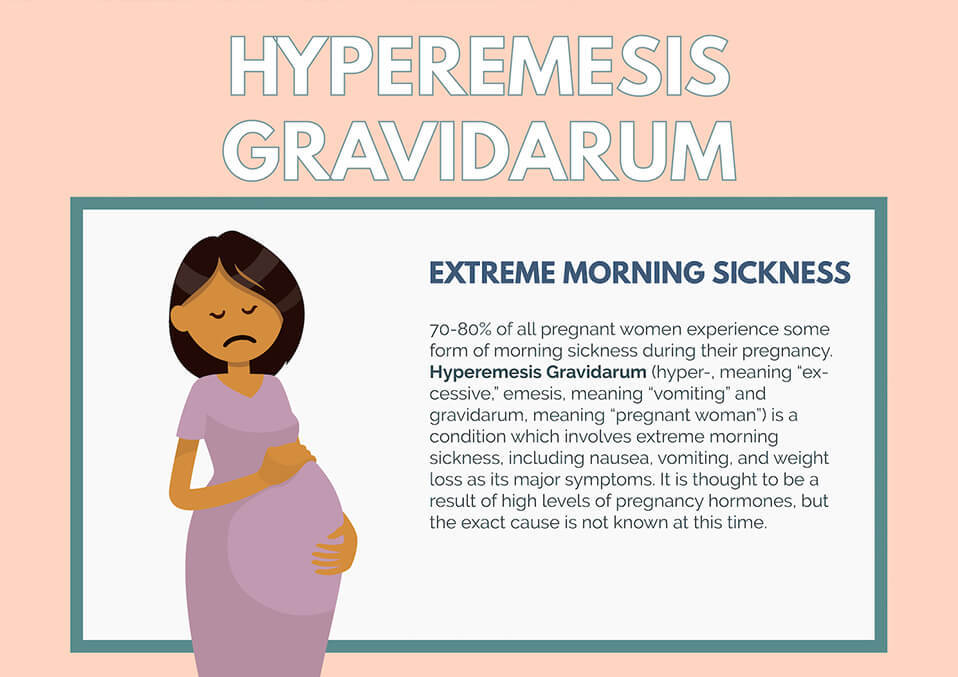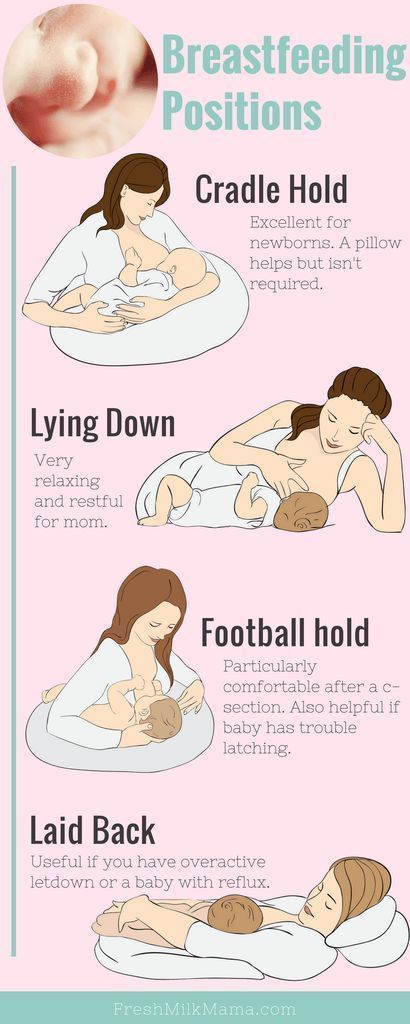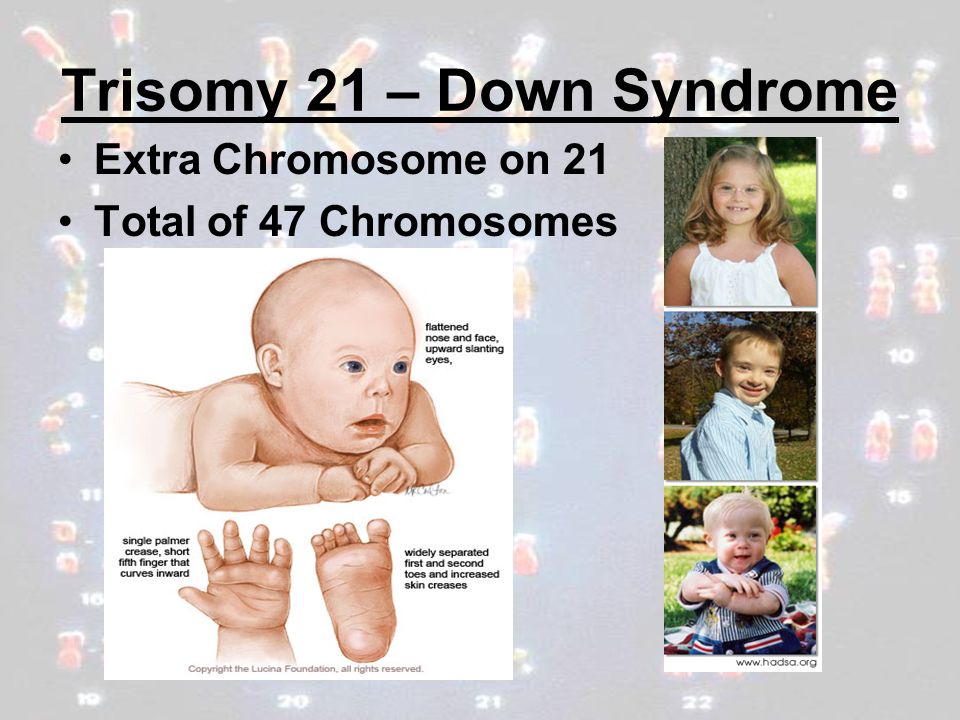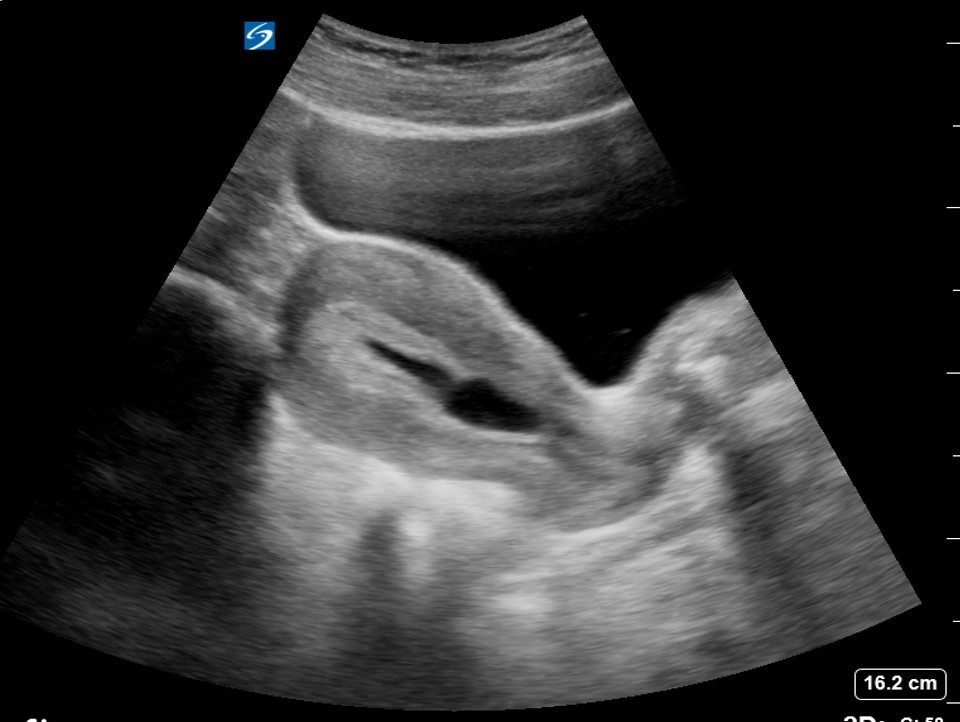Average weight gain in first trimester
Weight Gain in First Trimester: How Much Is Normal?
Congratulations — you’re pregnant! Along with what to put on the baby registry, how to set up the nursery, and where to go for preschool (just kidding — it’s a bit too early for that!), many people want to know how much weight they can expect to gain over the next 9 months.
While the majority of the pounds will make their appearance during the second and third trimester, there’s some initial weight gain that will happen in the first 12 weeks of pregnancy. In fact, on average, people gain 1 to 4 pounds in the first trimester — but it can vary. Let’s take a look at the factors involved.
“This is one of the most asked questions for patients during their much anticipated first obstetrical visit with their doctor,” says Jamie Lipeles, MD, DO, OB-GYN and founder of Marina OB/GYN.
Despite what you might have heard, you don’t gain too much weight in the first trimester, with the standard recommendation being 1 to 4 pounds. And unlike the second and third trimester (when body mass index, or BMI, may be more of a factor), Lipeles says the weight gain during the first 12 weeks is pretty much the same for all body types.
And if you’re pregnant with twins, Lipeles says the same guidelines apply to weight gain during the first trimester. However, this can change during the second and third trimesters, as twin pregnancies typically result in greater weight gain.
That said, there are occasions when your doctor may have a different recommendation for the first 12 weeks. “For patients with a BMI of more than 35, we often encourage them to maintain their weight for the entire first trimester,” says G. Thomas Ruiz, MD, OB-GYN at MemorialCare Orange Coast Medical Center.
Spending more time tightening your pants than loosening them in the first trimester? You might be wondering if losing or maintaining your weight is a red flag.
The good news? Not gaining any weight during the first trimester doesn’t mean anything’s wrong.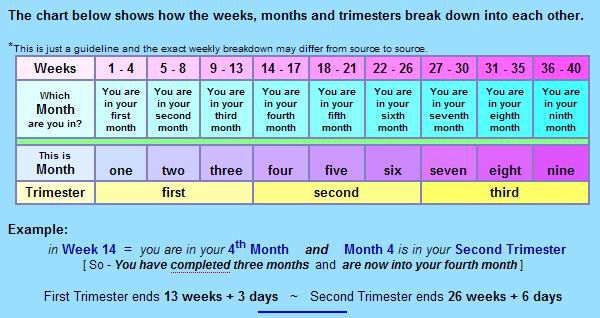 In fact, losing a few pounds in the first half of your pregnancy is a common occurrence (hello, morning sickness and food aversions!).
In fact, losing a few pounds in the first half of your pregnancy is a common occurrence (hello, morning sickness and food aversions!).
If you haven’t experienced morning sickness, consider yourself lucky. Feeling nauseous and experiencing occasional vomiting at any time of the day may cause you to maintain your weight or lose a few pounds. Fortunately, this typically subsides in the second and third trimester.
Pursing your lips at the sight of your favorite plate of scrambled eggs and bacon is also common in the first trimester. “I often joke with my patients and tell them that they might have food aversions in the first trimester, but then will overcompensate in the second and third trimester by having food cravings out of character for them outside of pregnancy,” says Lipeles.
If you’re experiencing vomiting or food aversions, make sure to share this information with your OB-GYN at your routine visits. It’s important to keep them in the loop, especially if you’re losing weight.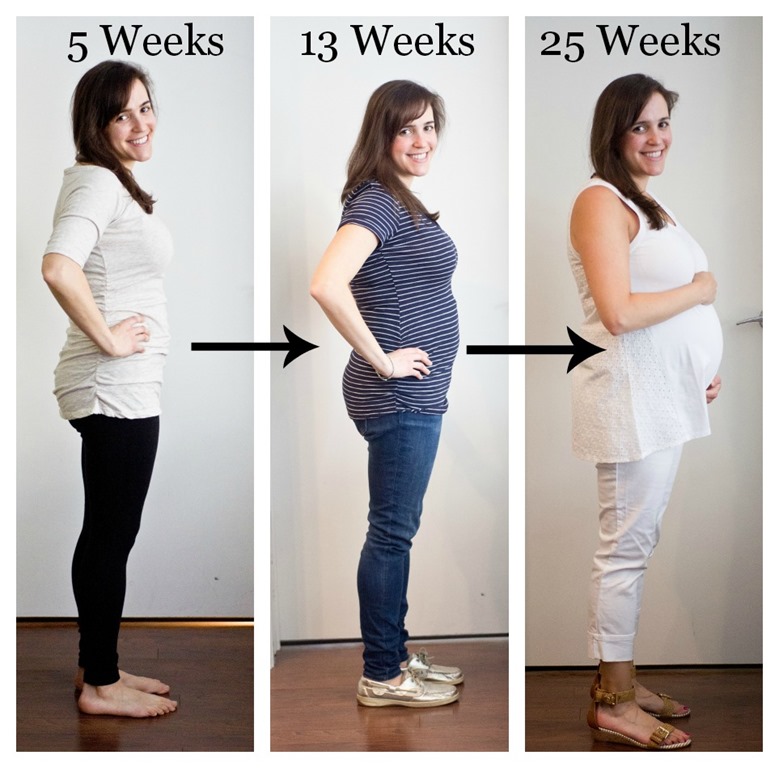 “Weight loss means the body is in a breakdown mode and is stressed, which leads to a deficiency in nutrients,” says Felice Gersh, MD, an OB-GYN at Integrative Medical Group of Irvin, where she’s the founder and director.
“Weight loss means the body is in a breakdown mode and is stressed, which leads to a deficiency in nutrients,” says Felice Gersh, MD, an OB-GYN at Integrative Medical Group of Irvin, where she’s the founder and director.
“Fortunately, an embryo can still acquire the nutrients needed for its development and growth — the mom, however, can lose important lean body mass and supportive fat,” adds Gersh.
And you do need to be cautious of experiencing notable weight loss.
One of the most common causes of significant weight loss is hyperemesis gravidarum, which is the most severe form of nausea and vomiting during pregnancy. This occurs in about 3 percent of pregnancies and typically requires treatment.
One of the perks of being pregnant is being able to ditch the diet mentality more easily. (We should likely all ditch it, permanently.) That said, it’s important to be aware of your weight and how it compares to the weight gain recommendations, as gaining too much weight comes with risks to both you and baby, including:
- Weight gain in baby: When mom gains weight, baby is likely to gain more than usual in the womb.
 This can result in a larger baby at birth.
This can result in a larger baby at birth. - Difficult delivery: With a significant weight gain, Lipeles says the anatomy of the birth canal is altered, yielding a more difficult and dangerous vaginal delivery.
- Higher risk of gestational diabetes: Gaining too much weight, especially early on in your pregnancy, can be an early sign of gestational diabetes. If you gain more than recommended in the first trimester, Lipeles says not to be surprised if your doctor gives you a glucose test prior to the standard 27- to 29-week range.
Despite the old saying “you’re eating for two,” the first trimester isn’t the time to load up on calories. In fact, unless your doctor has told you otherwise, you should maintain your pre-pregnancy intake.
However, as your pregnancy progresses, a gradual increase in calories is recommended. The Academy of Nutrition and Dietetics suggests a range of 2,200 to 2,900 calories a day, depending on your BMI prior to pregnancy.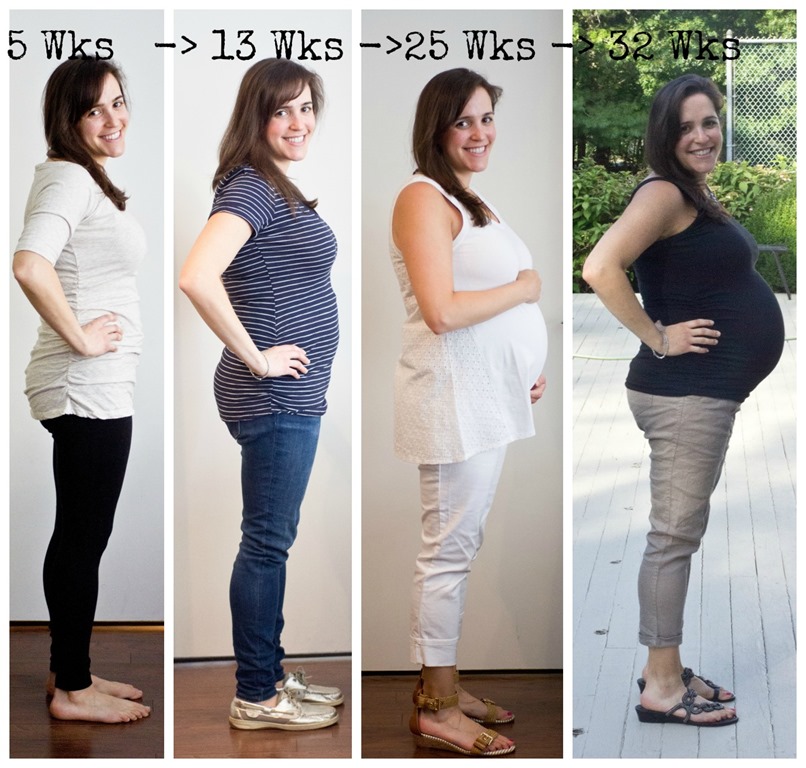 This equates to the following increase per trimester (use your pre-pregnancy intake as a baseline):
This equates to the following increase per trimester (use your pre-pregnancy intake as a baseline):
- First trimester: no additional calories
- Second trimester: eat an additional 340 calories per day
- Third trimester: eat an additional 450 calories per day
Most of us begin this journey with high hopes of eating healthily, exercising regularly, and avoiding anything with a shelf life longer than our pregnancy.
But then, life happens.
Between managing work, other children, social obligations, and all those trips to the restroom, finding the time — and energy — to maintain your pre-pregnancy exercise schedule or whip up a celebrity-inspired meal is sometimes a real challenge. The good news? You don’t have to get it right every day to grow a healthy human being.
So, what should you aim for? If you’re up for it, keep doing what you were doing before getting pregnant, as long as it doesn’t involve hanging upside down from a trapeze bar. Physical activities that are excellent choices during the first trimester include:
Physical activities that are excellent choices during the first trimester include:
- walking
- swimming
- jogging
- indoor cycling
- resistance training
- yoga
Set a goal to exercise most days of the week, or at least 150 minutes each week. The important thing is to stick to what you know. This is not the time to take up marathon training, especially if you’ve never run before.
As far as nutrition, aim to eat a balanced diet with a variety of foods. This includes:
- whole grains
- fruit
- vegetables
- lean protein
- healthy fats
- low fat dairy products like milk and yogurt
Since your body doesn’t require additional calories during the first trimester, eating as you usually would — provided it’s nutritious — is the goal.
While no two pregnancies are the same, there are some general guidelines to follow when it comes to gaining weight throughout all three trimesters. The American College of Obstetricians and Gynecologists (ACOG), along with the Institute of Medicine (IOM), categorizes weight gain based on your weight at your first appointment.
In general, the range for all 9 months is anywhere between 11 and 40 pounds. Those with more weight or obesity may need to gain less, whereas those with less weight may need to gain more. More specifically, the ACOG and IOM recommend the following ranges:
- BMI less than 18.5: approximately 28–40 pounds
- BMI of 18.5–24.9: approximately 25–35 pounds
- BMI of 25–29.9: approximately 15–25 pounds
- BMI 30 and greater: approximately 11–20 pounds
For twin pregnancies, the IOM recommends a total weight gain of 37 to 54 pounds.
To get a better idea of how many people stay within this range, the Centers for Disease Control and Prevention (CDC) analyzed data from several studies. It found that 21 percent gained less than the recommended amount of weight, whereas 47 percent gained more than the recommended amount.
Ideally, you’ll find a doctor you can trust to answer some seriously awkward questions. But even if this is your first go-around with your OB-GYN, leaning on them for knowledge and support is key to easing anxiety during pregnancy.
But even if this is your first go-around with your OB-GYN, leaning on them for knowledge and support is key to easing anxiety during pregnancy.
Since weight measurements are a part of every prenatal visit, each appointment is an opportunity to address any questions or concerns, especially since your OB is tracking a number of things, including weight changes.
Weight Gain in First Trimester: How Much Is Normal?
Congratulations — you’re pregnant! Along with what to put on the baby registry, how to set up the nursery, and where to go for preschool (just kidding — it’s a bit too early for that!), many people want to know how much weight they can expect to gain over the next 9 months.
While the majority of the pounds will make their appearance during the second and third trimester, there’s some initial weight gain that will happen in the first 12 weeks of pregnancy. In fact, on average, people gain 1 to 4 pounds in the first trimester — but it can vary. Let’s take a look at the factors involved.
“This is one of the most asked questions for patients during their much anticipated first obstetrical visit with their doctor,” says Jamie Lipeles, MD, DO, OB-GYN and founder of Marina OB/GYN.
Despite what you might have heard, you don’t gain too much weight in the first trimester, with the standard recommendation being 1 to 4 pounds. And unlike the second and third trimester (when body mass index, or BMI, may be more of a factor), Lipeles says the weight gain during the first 12 weeks is pretty much the same for all body types.
And if you’re pregnant with twins, Lipeles says the same guidelines apply to weight gain during the first trimester. However, this can change during the second and third trimesters, as twin pregnancies typically result in greater weight gain.
That said, there are occasions when your doctor may have a different recommendation for the first 12 weeks. “For patients with a BMI of more than 35, we often encourage them to maintain their weight for the entire first trimester,” says G. Thomas Ruiz, MD, OB-GYN at MemorialCare Orange Coast Medical Center.
Thomas Ruiz, MD, OB-GYN at MemorialCare Orange Coast Medical Center.
Spending more time tightening your pants than loosening them in the first trimester? You might be wondering if losing or maintaining your weight is a red flag.
The good news? Not gaining any weight during the first trimester doesn’t mean anything’s wrong. In fact, losing a few pounds in the first half of your pregnancy is a common occurrence (hello, morning sickness and food aversions!).
If you haven’t experienced morning sickness, consider yourself lucky. Feeling nauseous and experiencing occasional vomiting at any time of the day may cause you to maintain your weight or lose a few pounds. Fortunately, this typically subsides in the second and third trimester.
Pursing your lips at the sight of your favorite plate of scrambled eggs and bacon is also common in the first trimester. “I often joke with my patients and tell them that they might have food aversions in the first trimester, but then will overcompensate in the second and third trimester by having food cravings out of character for them outside of pregnancy,” says Lipeles.
If you’re experiencing vomiting or food aversions, make sure to share this information with your OB-GYN at your routine visits. It’s important to keep them in the loop, especially if you’re losing weight. “Weight loss means the body is in a breakdown mode and is stressed, which leads to a deficiency in nutrients,” says Felice Gersh, MD, an OB-GYN at Integrative Medical Group of Irvin, where she’s the founder and director.
“Fortunately, an embryo can still acquire the nutrients needed for its development and growth — the mom, however, can lose important lean body mass and supportive fat,” adds Gersh.
And you do need to be cautious of experiencing notable weight loss.
One of the most common causes of significant weight loss is hyperemesis gravidarum, which is the most severe form of nausea and vomiting during pregnancy. This occurs in about 3 percent of pregnancies and typically requires treatment.
One of the perks of being pregnant is being able to ditch the diet mentality more easily.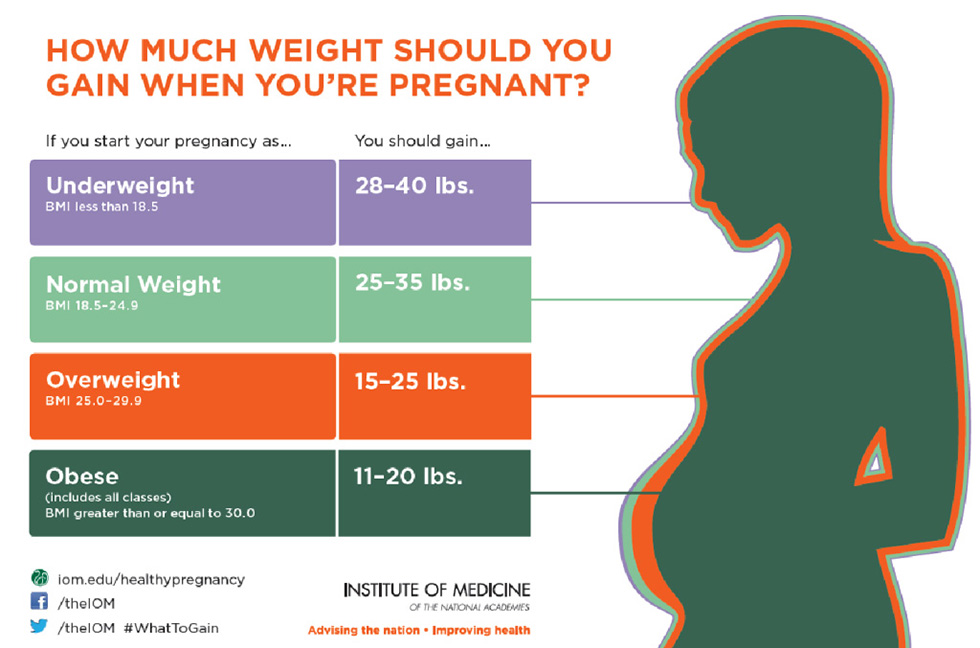 (We should likely all ditch it, permanently.) That said, it’s important to be aware of your weight and how it compares to the weight gain recommendations, as gaining too much weight comes with risks to both you and baby, including:
(We should likely all ditch it, permanently.) That said, it’s important to be aware of your weight and how it compares to the weight gain recommendations, as gaining too much weight comes with risks to both you and baby, including:
- Weight gain in baby: When mom gains weight, baby is likely to gain more than usual in the womb. This can result in a larger baby at birth.
- Difficult delivery: With a significant weight gain, Lipeles says the anatomy of the birth canal is altered, yielding a more difficult and dangerous vaginal delivery.
- Higher risk of gestational diabetes: Gaining too much weight, especially early on in your pregnancy, can be an early sign of gestational diabetes. If you gain more than recommended in the first trimester, Lipeles says not to be surprised if your doctor gives you a glucose test prior to the standard 27- to 29-week range.
Despite the old saying “you’re eating for two,” the first trimester isn’t the time to load up on calories.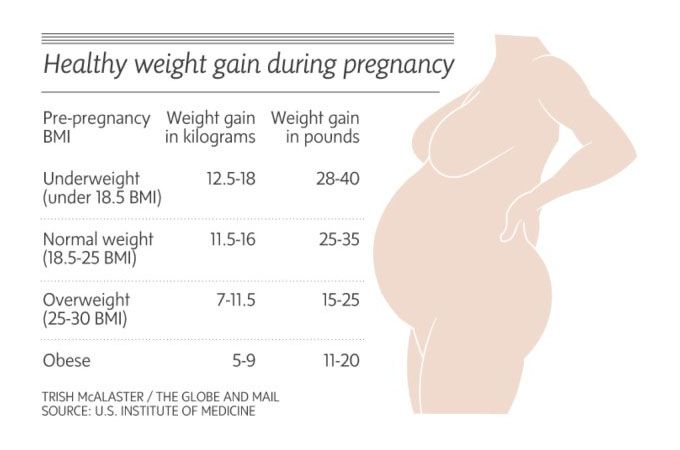 In fact, unless your doctor has told you otherwise, you should maintain your pre-pregnancy intake.
In fact, unless your doctor has told you otherwise, you should maintain your pre-pregnancy intake.
However, as your pregnancy progresses, a gradual increase in calories is recommended. The Academy of Nutrition and Dietetics suggests a range of 2,200 to 2,900 calories a day, depending on your BMI prior to pregnancy. This equates to the following increase per trimester (use your pre-pregnancy intake as a baseline):
- First trimester: no additional calories
- Second trimester: eat an additional 340 calories per day
- Third trimester: eat an additional 450 calories per day
Most of us begin this journey with high hopes of eating healthily, exercising regularly, and avoiding anything with a shelf life longer than our pregnancy.
But then, life happens.
Between managing work, other children, social obligations, and all those trips to the restroom, finding the time — and energy — to maintain your pre-pregnancy exercise schedule or whip up a celebrity-inspired meal is sometimes a real challenge.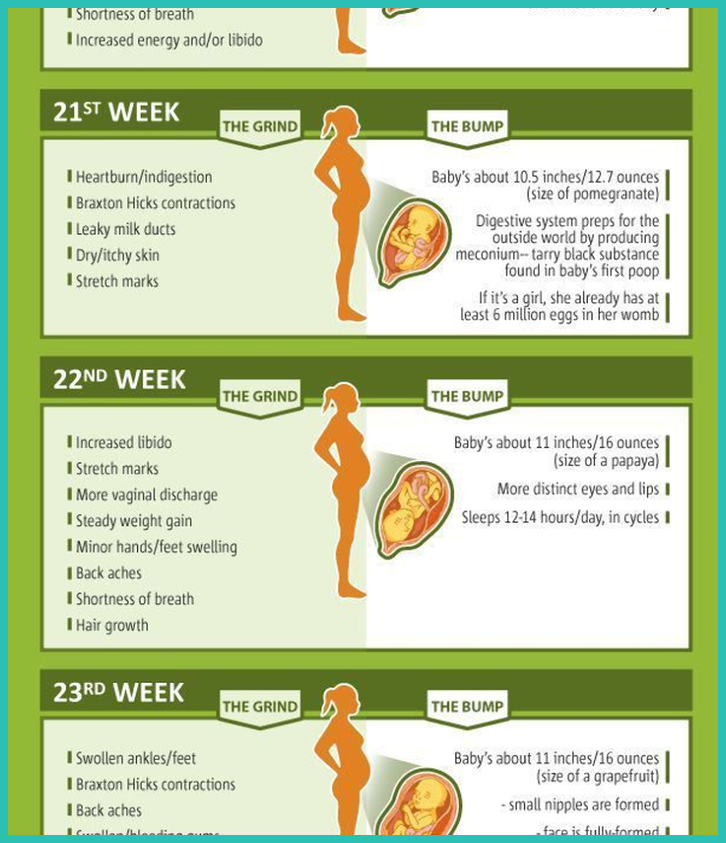 The good news? You don’t have to get it right every day to grow a healthy human being.
The good news? You don’t have to get it right every day to grow a healthy human being.
So, what should you aim for? If you’re up for it, keep doing what you were doing before getting pregnant, as long as it doesn’t involve hanging upside down from a trapeze bar. Physical activities that are excellent choices during the first trimester include:
- walking
- swimming
- jogging
- indoor cycling
- resistance training
- yoga
Set a goal to exercise most days of the week, or at least 150 minutes each week. The important thing is to stick to what you know. This is not the time to take up marathon training, especially if you’ve never run before.
As far as nutrition, aim to eat a balanced diet with a variety of foods. This includes:
- whole grains
- fruit
- vegetables
- lean protein
- healthy fats
- low fat dairy products like milk and yogurt
Since your body doesn’t require additional calories during the first trimester, eating as you usually would — provided it’s nutritious — is the goal.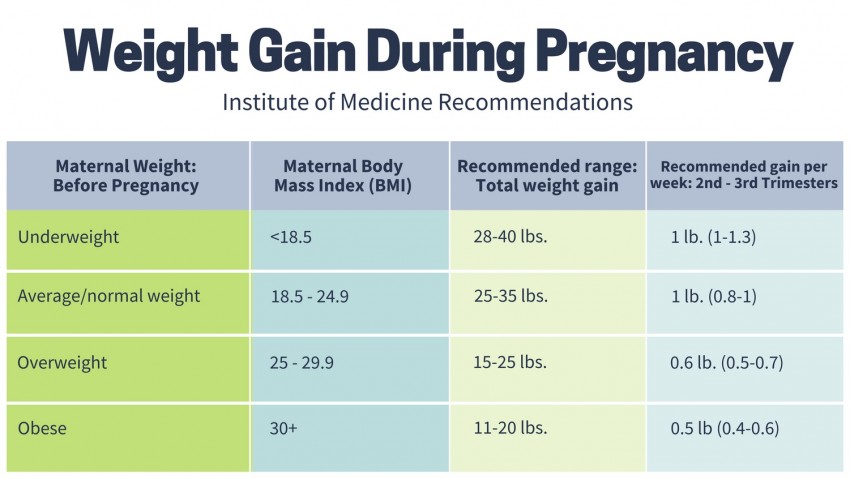
While no two pregnancies are the same, there are some general guidelines to follow when it comes to gaining weight throughout all three trimesters. The American College of Obstetricians and Gynecologists (ACOG), along with the Institute of Medicine (IOM), categorizes weight gain based on your weight at your first appointment.
In general, the range for all 9 months is anywhere between 11 and 40 pounds. Those with more weight or obesity may need to gain less, whereas those with less weight may need to gain more. More specifically, the ACOG and IOM recommend the following ranges:
- BMI less than 18.5: approximately 28–40 pounds
- BMI of 18.5–24.9: approximately 25–35 pounds
- BMI of 25–29.9: approximately 15–25 pounds
- BMI 30 and greater: approximately 11–20 pounds
For twin pregnancies, the IOM recommends a total weight gain of 37 to 54 pounds.
To get a better idea of how many people stay within this range, the Centers for Disease Control and Prevention (CDC) analyzed data from several studies. It found that 21 percent gained less than the recommended amount of weight, whereas 47 percent gained more than the recommended amount.
It found that 21 percent gained less than the recommended amount of weight, whereas 47 percent gained more than the recommended amount.
Ideally, you’ll find a doctor you can trust to answer some seriously awkward questions. But even if this is your first go-around with your OB-GYN, leaning on them for knowledge and support is key to easing anxiety during pregnancy.
Since weight measurements are a part of every prenatal visit, each appointment is an opportunity to address any questions or concerns, especially since your OB is tracking a number of things, including weight changes.
Weight gain during pregnancy - how not to gain weight?
Contents:
- What are the optimal weight limits?
- Pregnancy Weight Chart
- How to weigh yourself correctly during pregnancy
- Why does weight gain occur?
During pregnancy, it is important for a woman to eat a varied diet so as not to deprive the unborn baby of essential minerals and nutrients. Both excessive weight gain and weight loss are equally dangerous. But evidence suggests that more than half of European and American women gain more weight during pregnancy than recommended 1 . So now is the time to give up what does not bring any benefit, but only extra pounds: sweet, fatty, fast food. Being overweight can cause problems during pregnancy and childbirth.
Both excessive weight gain and weight loss are equally dangerous. But evidence suggests that more than half of European and American women gain more weight during pregnancy than recommended 1 . So now is the time to give up what does not bring any benefit, but only extra pounds: sweet, fatty, fast food. Being overweight can cause problems during pregnancy and childbirth.
What are the optimal weight limits?
The average weight gain during pregnancy is about 10-12.5 kilograms 2 . But a child is born weighing 3-4 kilograms, where does everything else come from and when does the excess go away?
In addition to the fetus itself, the uterus and breasts become larger in preparation for feeding. Muscle and fat increase - the body stores energy.
This is how the weight gained by a woman during pregnancy is distributed on the eve of feeding,
0.9 kg - amniotic fluid,
1.4–1.8 kg - blood and organic fluids, thanks to which the child receives the necessary oxygen,
0.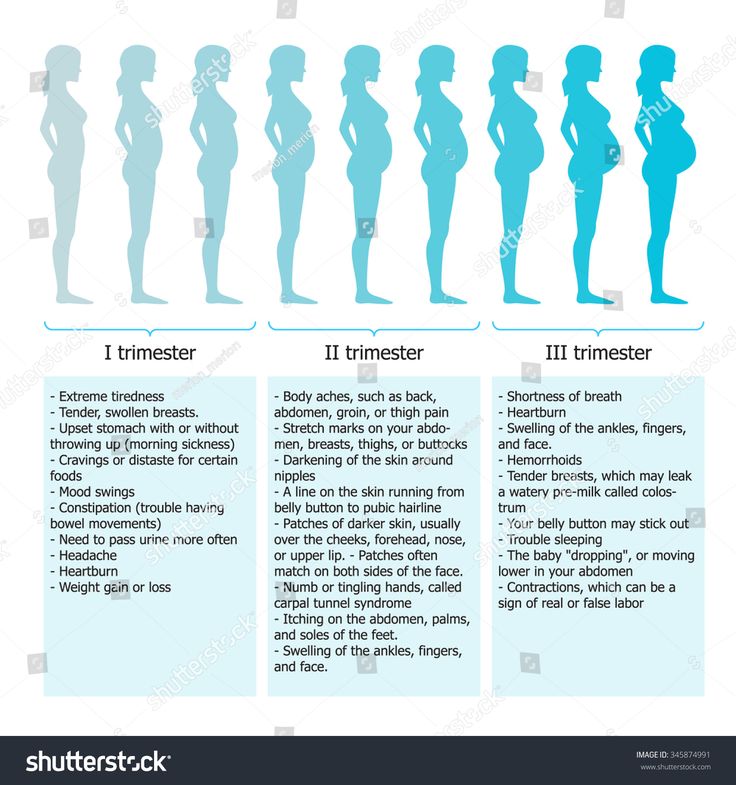 9 kg - uterus (20 times more than normal weight),
9 kg - uterus (20 times more than normal weight),
0.7 kg - placenta, the main element through which the fetus receives nutrients.
Add the weight of the unborn baby, and you will get the approximate weight that a woman gains in nine months.
Doctors say that everything is individual and there are no uniform standards for how many kilograms to gain during pregnancy. But let things take their course, there is something horrible and you can’t completely forget about the scales. Watch your weight - you will avoid many problems during pregnancy and childbirth and easily return to your previous weight. You will have "strategic reserves" for feeding the baby. Don't worry, those extra pounds will go away as quickly as they appeared. But only on the condition that you eat right during pregnancy and lactation.
Pregnancy weight chart
The recommended weight gain during pregnancy for women with a normal body mass index is 11.5-16 kilograms. Those who are overweight during pregnancy are advised to gain a little less - from 7 to 11.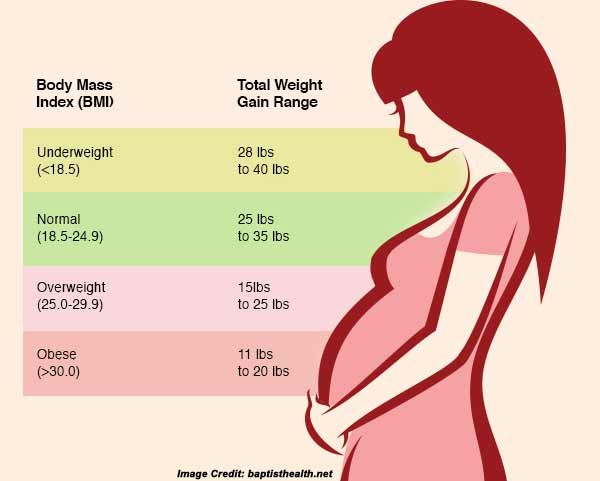 5 kilograms. Those who are expecting twins or triplets, on the contrary, should score more. For example, in a multiple pregnancy with twins for a woman of normal weight, the recommended weight gain is from 16.8 to 24.5 kilograms 3 .
5 kilograms. Those who are expecting twins or triplets, on the contrary, should score more. For example, in a multiple pregnancy with twins for a woman of normal weight, the recommended weight gain is from 16.8 to 24.5 kilograms 3 .
Trimester weight gain during pregnancy varies 3 . A woman gains the least during the first trimester - from 1.6 to 2.3 kg. Nausea in the first trimester usually causes loss of appetite and some weight loss may occur.
In the second and third trimesters, a woman gains an average of 200 to 500 g per week.
Pregnancy weight gain: weekly chart, weight in kilograms
| Week | Minimum | Average weight | Maximum |
|---|---|---|---|
| 14 | 1.1 | 1.5 | 1.9 |
| 15 | 1.6 | 2 | 2. 4 4 |
| 16 | 1.9 | 2.3 | 2.8 |
| 17 | 2.2 | 2.8 | 3.4 |
| 18 | 2.5 | 2.8 | 3.4 |
| 19 | 3 | 3.7 | 4.5 |
| 20 | 3.5 | 4.2 | 5 |
| 21 | 3.9 | 4.7 | 5.6 |
| 22 | 4.2 | 5.2 | 6.2 |
| 23 | 4.6 | 5.7 | 6.9 |
| 24 | 4.9 | 6.1 | 7.4 |
| 25 | 5.3 | 6.6 | 8 |
| 26 | 5.6 | 7 | 8.5 |
| 27 | 6 | 7.5 | 9 |
| 28 | 6.3 | 7.9 | 9.5 |
| 29 | 6.7 | 8.3 | 9.9 |
| 30 | 7 | 8.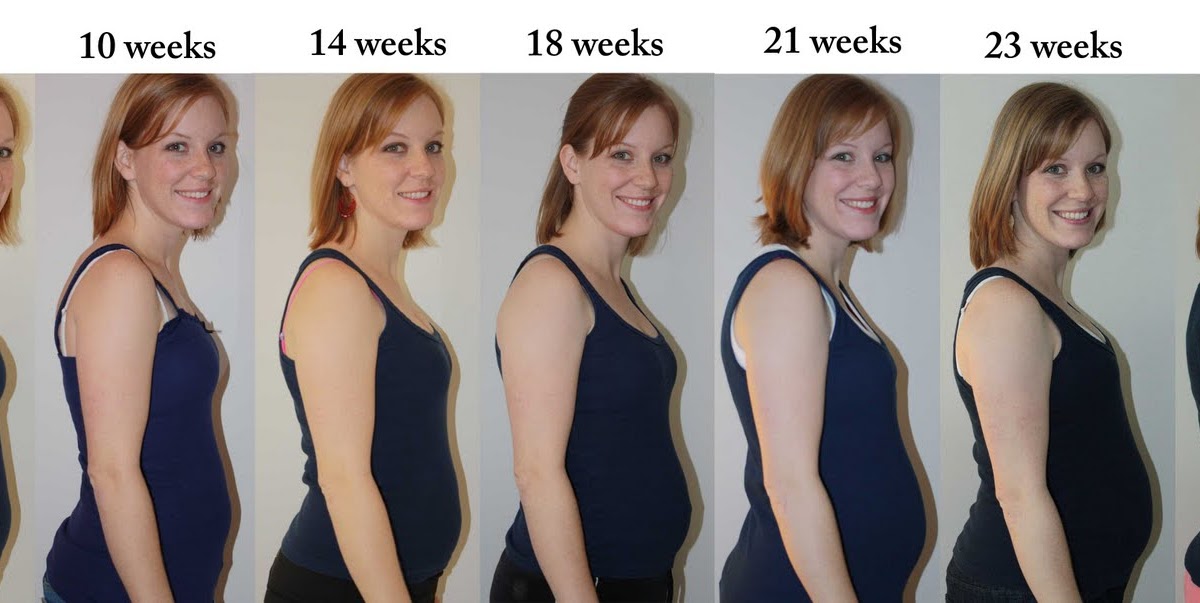 7 7 | 10.4 |
| 31 | 7.3 | 9 | 10.8 |
| 32 | 7.5 | 9.4 | 11.3 |
| 33 | 7.8 | 9.7 | 11.7 |
| 34 | 8.1 | 10.1 | 12.1 |
| 35 | 8.4 | 10.5 | 12.6 |
| 36 | 8.6 | 10.8 | 13 |
| 37 | 9 | 11.2 | 13.5 |
| 38 | 9.3 | 11.6 | 14 |
| 39 | 9.4 | 11.7 | 14.1 |
| 40 | 9.5 | 11.8 | 14.2 |
How to weigh yourself correctly during pregnancy
Doctors do not recommend weighing yourself daily, it is not always informative, fluctuations are not always noticeable, the error is large, and in general this can lead to unnecessary worries.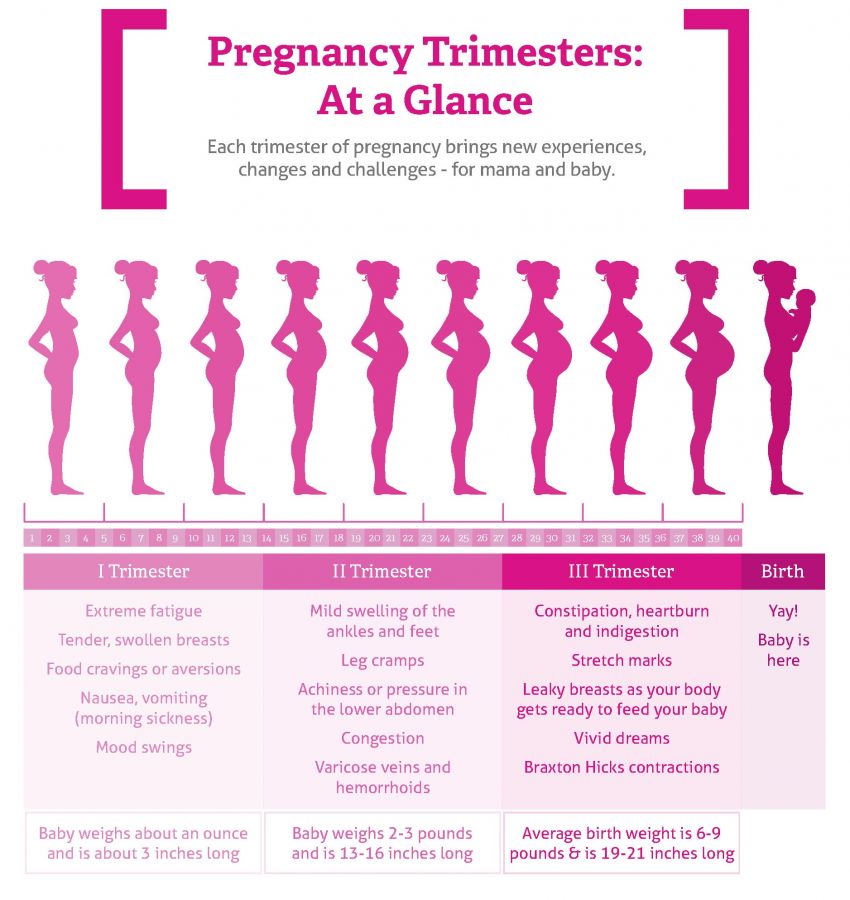 The correct option: control the weight once a week, in the morning, on an empty stomach. It is important to use the same scales, now the priority is “dynamics”. Weigh yourself only at home or in the office of your gynecologist.
The correct option: control the weight once a week, in the morning, on an empty stomach. It is important to use the same scales, now the priority is “dynamics”. Weigh yourself only at home or in the office of your gynecologist.
Why does weight gain occur?
Excess weight is caused by hormonal changes in the body, which makes the expectant mother constantly feel hungry. Many pregnant women decide that now they need to eat for two. No need. Just eat twice as good - more varied, more correct, but not more.
Sources:
* Not a drug. dietary supplement. There are contraindications. ** Estimated period of use within the Elevit line of vitamin and mineral complexes. According to the instructions, Elevit Pronatal can be used at the stage of pregnancy planning, during pregnancy, after childbirth and during breastfeeding.
- Healthy maternal nutrition: a better start to life report WHO, Regional Office for Europe 2016.
- https://www.nhs.uk/common-health-questions/pregnancy/how-much-weight-will-i-put-on-during-my-pregnancy/
- Poston L.
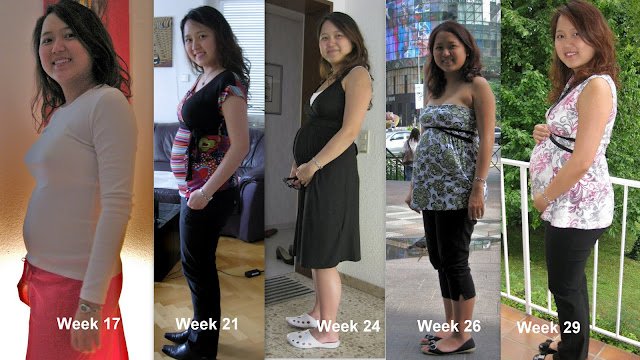 Gestational weight gain // https://www.uptodate.com/contents/gestational-weight-gain, accessed 07.10.2018.
Gestational weight gain // https://www.uptodate.com/contents/gestational-weight-gain, accessed 07.10.2018.
CH-20220504-32
Pregnancy weight gain - What is BMI?
- Contents
Every woman gains a certain amount of weight during pregnancy. But in this case, it cannot be called superfluous, since each kilogram appears for a reason. You should not be afraid of such weight gain, because often after childbirth, most women manage to quickly return to their usual form. However, one should not “launch” oneself either - too rapid weight gain at each stage of pregnancy can have negative consequences. Everything should be in moderation, and in order to control it, you need to know in advance what should be the rate of weight gain during pregnancy.
What is the normal weight gain during pregnancy?
This indicator is individual. Some gain only 5-6 kg, feeling fine, having no problems with bearing a child. There are those who gain more than 20 kg, also without complaints and complications. However, in most cases, the rate of weight gain during pregnancy is average between these values - 9-14 kg when carrying one child and 16-21 kg if the pregnancy is multiple.
However, in most cases, the rate of weight gain during pregnancy is average between these values - 9-14 kg when carrying one child and 16-21 kg if the pregnancy is multiple.
It is also important to remember that in the first trimester a pregnant woman may not notice weight gain. Firstly, the fetus is just being formed, and it is too early to talk about its growth. Secondly, many during this period have severe toxicosis, accompanied by a deterioration in appetite and vomiting. As a result of such conditions, a woman can, on the contrary, lose a couple of kilograms. Starting from the second trimester, weight gain becomes more noticeable. Usually it is about 1 kg per month. The sharpest jump can be seen in recent months - then a woman can recover more than 400 g per week.
Keep in mind that these are only generalized data and should not be taken as a hard and fast rate of weight gain during pregnancy. Only a doctor can determine whether this or that weight gain is acceptable for a woman and her fetus.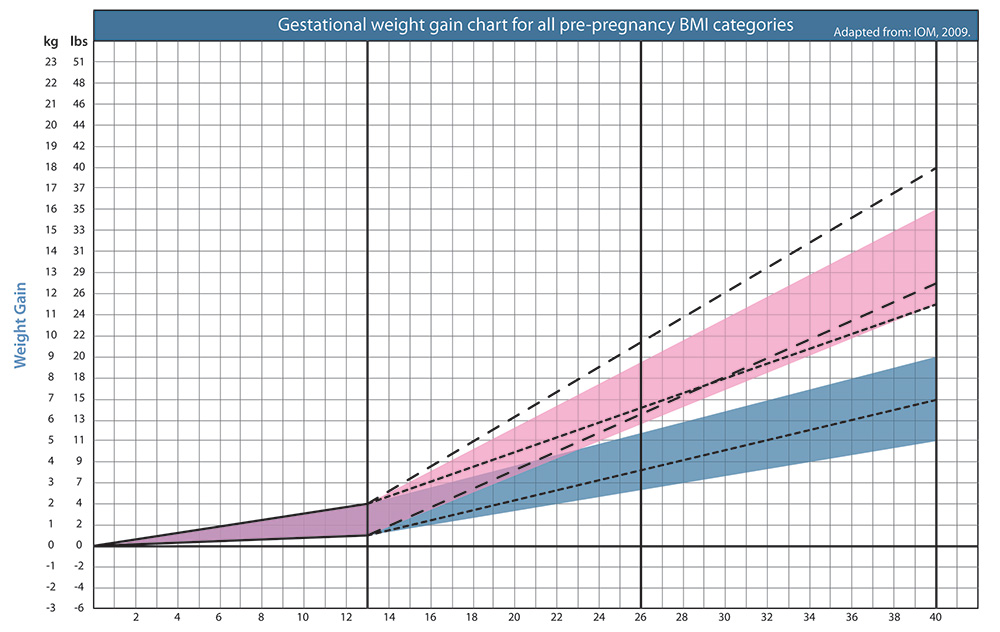 This is especially true in cases where a pregnant woman has concomitant health problems, or she bears more than three children.
This is especially true in cases where a pregnant woman has concomitant health problems, or she bears more than three children.
What increases the weight of a pregnant woman?
So that a pregnant woman is not afraid of the fact that she is gaining kilograms, she needs to understand where they come from.
The main sources of weight gain are:
- Fetal weight. The child in the womb is getting bigger every day, respectively, this affects the weight indicator, adding up to 3-4 kg.
- Increased uterus and amniotic fluid volume. Usually, at their expense, a pregnant woman gains up to 2 kg before giving birth.
- Increased blood volume in the body. This indicator can vary greatly, but usually about 1.5 kg is assigned to it.
- The appearance of additional fluid in the body. Its weight can be from 1.5 to 3 kg.
Do not forget that in the last weeks before giving birth, a woman's mammary glands begin to enlarge - milk accumulates in them. This process increases the total weight by about 0.5 kg.
This process increases the total weight by about 0.5 kg.
Regardless of how a woman eats during pregnancy, avoiding the accumulation of body fat is extremely rare. The norm can be considered a situation when their weight does not exceed 3-4 kg. This indicator can be considered the most unstable. If a woman was actively involved in sports before pregnancy, she may gain less. If a pregnant woman allows herself to eat too much, or takes hormonal drugs to preserve the fetus, this can lead to a significant increase in this indicator.
What factors influence weight gain during pregnancy?
Although the sources of weight gain are clearly identified, there are internal and external factors that can affect the amount of weight gained.
The main ones are:
- Initial weight of a woman. Of course, this factor cannot be considered decisive, but it shows that usually thin women gain more extra pounds during pregnancy than obese women.
- Growth of a pregnant woman.
 Tall women tend to gain more kg.
Tall women tend to gain more kg. - Tendency to be overweight. If a woman has such a predisposition, she needs to be especially careful, because during pregnancy she can gain a lot of extra pounds.
- Strong increase in appetite. This factor is not common to everyone, but to the majority. Feeling a sharp increase in appetite, women can succumb to it, or vice versa - try to restrain themselves, controlling weight gain in themselves and in the fetus.
- The presence of toxicosis. If such conditions are frequent and severe, it can lead to weight loss, which is highly undesirable during pregnancy.
- Presence of comorbidities such as diabetes mellitus. In this case, a violation of metabolic processes is possible, which will cause weight gain.
It is worth remembering that age can also affect the rate of weight gain. The older a woman is, the more difficult it is for her to control her weight gain during pregnancy. Therefore, for those who give birth in adulthood, it is important to pay special attention to this issue.
BMI when calculating weight gain
BMI is one of the basic concepts that can be used to control the process of weight gain during pregnancy. This indicator is calculated quite simply - according to the formula: the usual weight of a person must be divided by his height (m) squared.
The resulting figure can be attributed to 3 types of figure:
- up to 19.8 (Group 1) - the thinnest women
- 19.8-26 (Group 2) - women with an average build
- from 26 (3 group) - obese women
For example
With a height of 1.75 m, a woman weighs 65 kg.
1.75*1.75≈3.
65:3=21.6
It is the body mass index that is used in calculating the rate of weight gain during pregnancy by trimesters or weeks. The easiest way to do this is to use a weight gain calculator.
Danger of being underweight during pregnancy
Severe weight loss during pregnancy or simply underweight can adversely affect the health of both the woman and the child.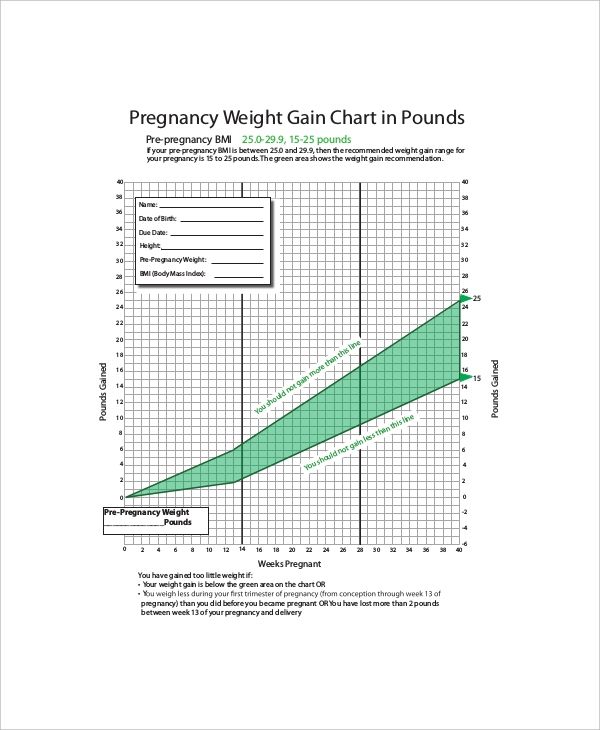
Possible risks are:
- premature birth, which can be very dangerous for both the mother and the baby
- too low birth weight, which can cause health problems
- baby's weight in the first months after birth
To exclude the possibility of such unpleasant situations, it is important to timely notice the underweight and determine its cause. It may consist in malnutrition, severe toxicosis, etc. Usually, such conditions can be successfully corrected by taking special medications or diets.
What is the danger of too rapid weight gain during pregnancy?
Rapid weight gain during pregnancy, as well as its reduction, is fraught with the following pathologies:
- development of gestational diabetes mellitus
- increased blood pressure
- risk of preeclampsia - severe deterioration of the pregnant woman in the last weeks before delivery
- permanent headaches
- pain
- premature aging of the placenta
- metabolic disorder
It is important to remember that if the mother-to-be recovers rapidly, the same happens to the fetus. Its large weight can complicate the process of natural childbirth, because of which you will have to do a caesarean. It also increases the risk of preterm birth with complications.
Its large weight can complicate the process of natural childbirth, because of which you will have to do a caesarean. It also increases the risk of preterm birth with complications.
How to maintain a correct BMI during pregnancy: nutritional tips
No matter how much a woman gains weight during pregnancy, it is important for her to follow a healthy diet. In addition to the ability to maintain normal weight, it will also help maintain the health of the pregnant woman and the child.
The following recommendations can be considered universal:
- Exclusion from the diet of a large number of sweet foods, primarily flour.
- The use of fermented milk products in sufficient quantities (they will help improve metabolic processes).
- Selection of foods that contain folic acid. If this is not possible, you can take the appropriate drugs.
- Refusal of fatty, fried and smoked foods - such food can not only cause weight gain, but also negatively affect the health of the fetus, as it worsens blood quality.

